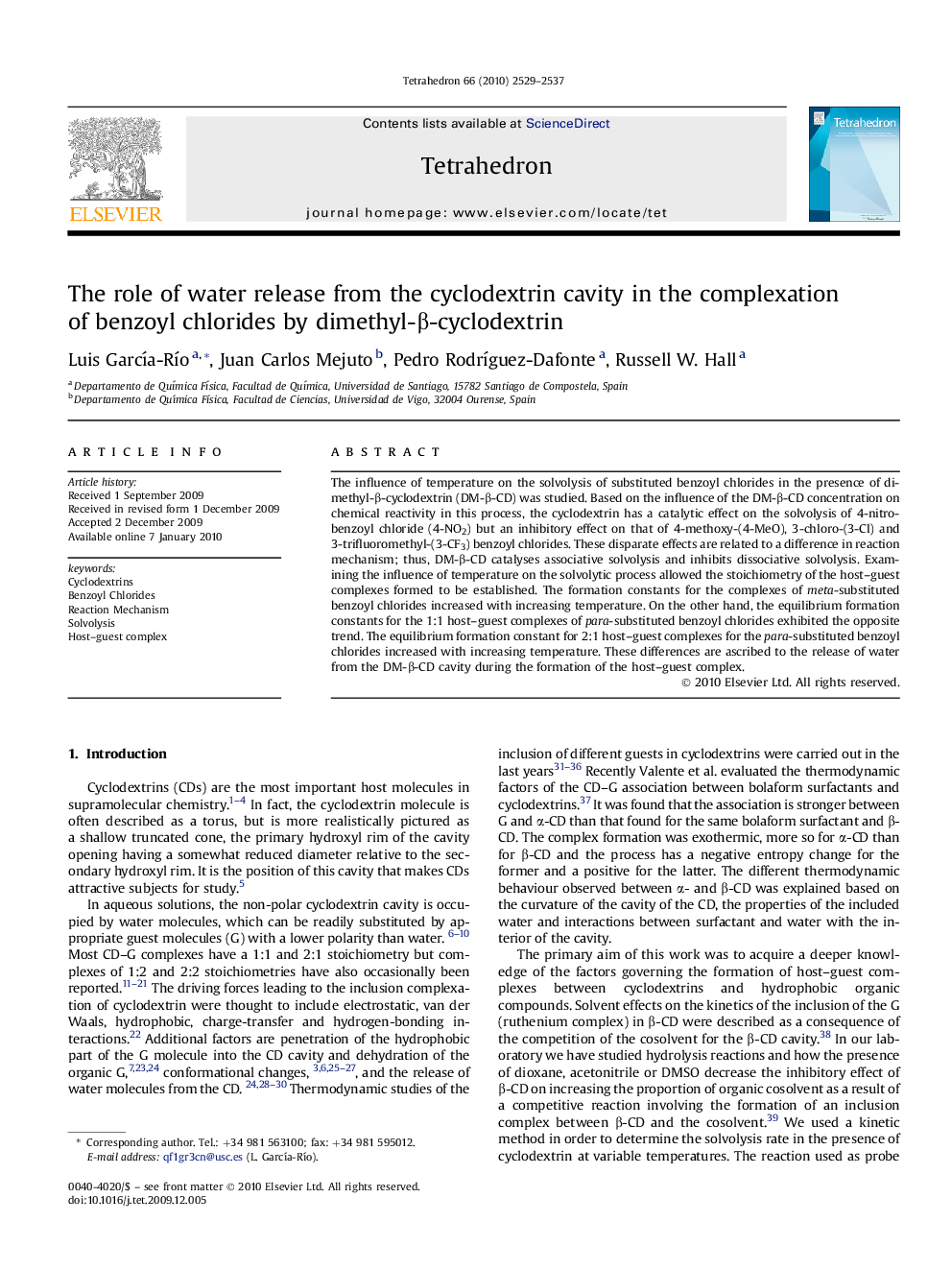| Article ID | Journal | Published Year | Pages | File Type |
|---|---|---|---|---|
| 5224633 | Tetrahedron | 2010 | 9 Pages |
The influence of temperature on the solvolysis of substituted benzoyl chlorides in the presence of dimethyl-β-cyclodextrin (DM-β-CD) was studied. Based on the influence of the DM-β-CD concentration on chemical reactivity in this process, the cyclodextrin has a catalytic effect on the solvolysis of 4-nitrobenzoyl chloride (4-NO2) but an inhibitory effect on that of 4-methoxy-(4-MeO), 3-chloro-(3-Cl) and 3-trifluoromethyl-(3-CF3) benzoyl chlorides. These disparate effects are related to a difference in reaction mechanism; thus, DM-β-CD catalyses associative solvolysis and inhibits dissociative solvolysis. Examining the influence of temperature on the solvolytic process allowed the stoichiometry of the host-guest complexes formed to be established. The formation constants for the complexes of meta-substituted benzoyl chlorides increased with increasing temperature. On the other hand, the equilibrium formation constants for the 1:1 host-guest complexes of para-substituted benzoyl chlorides exhibited the opposite trend. The equilibrium formation constant for 2:1 host-guest complexes for the para-substituted benzoyl chlorides increased with increasing temperature. These differences are ascribed to the release of water from the DM-β-CD cavity during the formation of the host-guest complex.
Graphical abstractDownload full-size image
